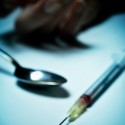Center will study effects of alcohol on brain
UNM was given $2.5 million this semester to start one of the nation’s first fetal alcohol research centers.
The program is funded by a five-year grant from the National Institute on Alcohol Abuse and Alcoholism.
The New Mexico Alcohol Research Center will look at the effects of alcohol on the brain. Dr. Daniel Savage, who is leading the program, said he will research fetal alcohol syndrome and a new ailment called fetal alcohol spectrum disorder.
He said differentiating between the disorders is important because they can affect patients in different ways and at different times in life.
“We call it fetal alcohol spectrum disorder these days because FAS is just one end of the spectrum of problems that have been associated with maternal drinking during pregnancy,” Savage said.
Cathy Salazar is the adoptive mother of 7-year-old Shelly, who has FAS and has also been diagnosed with OCD. Shelly will work with Savage at the NMARC.
Salazar said that as a parent of an FAS child, she had to learn a new set of parenting rules. When Salazar adopted Shelly, she was 13 months old, but she was born at 28 weeks and weighed 1 pound, 8 ounces.
“As foster parents, we didn’t know much about FAS,” Salazar said. “I read a book about parents of FAS. One of the hardest things is impulse control – as a parent you have to constantly repeat directions.”
Shelly cannot communicate with many people outside her family, but she is learning to talk through a computer language program. Salazar said that as Shelly gets older, there will probably be more behavioral complications.
“She will probably always need someone to help her take care of herself,” she said.
Savage said close to .03 percent of the population has FAS and 1 percent has FASD, making the disorders more common than autism.
Savage said research of FASD needs to pick up in the next couple years.
He said more than a half million women in the U.S. drink alcohol during pregnancy each year. The NMARC wants to help people understand the consequences of maternal drinking during pregnancy and find ways to help those with FAS and FASD, Savage said.
“One of our goals is to identify new approaches for diagnosing children,” he said. “And, if we can, identify some of these lesser-affected children earlier, and then develop ways to effectively treat them so they will be better off in the long run.”
Savage said maternal drinking can affect people later in life. Many people show symptoms of FAS at birth, while those with FASD show symptoms around middle school or high school age.
“There are certain kinds of learning problems, particularly with math and science,” he said. “There’s problems in abstract thinking, social learning problems, understanding the difference between right and wrong, risk-taking behaviors and getting in trouble with the law.”
Savage said some young people behave this way but will grow out of it when they are adults, while someone with FASD will continue to act out.
He said this is because the frontal areas of the brain are affected by alcohol, and these parts are some of the last to develop in humans. Savage said this also means other important discoveries about the brain could be made by researching FASD.
“We hope that part of what we learn may have some application and extension to other neural development disorders,” Savage said.
Dr. Piyadasa Kodituwakku is a clinical psychologist working with the research center and oversees much of what goes on with patients.
Kodituwakku said research should not only look into the effects of alcohol on a fetal brain but other possible factors as well.
“I think that we need to look at behavioral function that results from a number of things. One is alcohol-related brain damage,” he said. “There can be other sources. If they are not placed in an optimal environment for learning, that doesn’t help.”
Many children with FAS are born into homes that might not be able to support a child, Kodituwakku said.
“The third source is the genetic factor,” he said. “We find that parents who are abusing alcohol might have a learning disability as well.”
Kodituwakku said many FAS and FASD patients also have to deal with other psychological disorders such as depression or Post-Traumatic Stress Disorder. There have been follow-up studies on children with FASD which showed that as they grew older, many developed psychological disorders.
“The underlying cause of the psychological difficulties we don’t know and, in the end, there might be multiple sources,” Kodituwakku said. “There may be a significant number who have experienced trauma.”
_________________
source: New Mexico Daily Lobo

